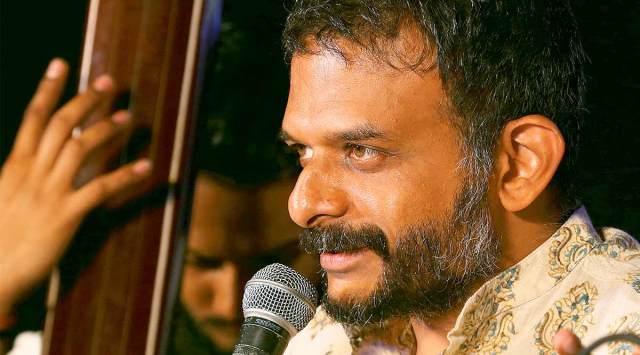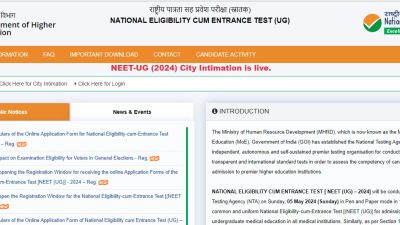- India
- International
‘It’s important for the political world of today to own up to their mistakes in public’
Carnatic classical vocalist TM Krishna’s 'The Edict Project' will musically attempt to rediscover King Ashoka’s famed edicts -- philosophies that speak of a more humane society built on empathy and compassion
 Carnatic classical vocalist TM Krishna files a petition in Madras High Court challenging the Centre's IT Rules 2021. (Photo: Amit Mehra)
Carnatic classical vocalist TM Krishna files a petition in Madras High Court challenging the Centre's IT Rules 2021. (Photo: Amit Mehra)For King Ashoka, the third monarch of the Mauryan empire who invaded Kalinga and won the infamous war that left thousands dead, it was the colossal carnage that led to self-realisation. As is documented, the emperor stood among the dead and the dying in the battlefield of Dhauli (near Bhubaneshwar) and found his victory deplorable due to the pain and suffering it had brought. The grim victory changed not only his life but also became a significant treatise for the future, for generations to understand the futility of war. Ashoka not just converted to Buddhism and established a reign of virtue after understanding the tragedy of war but also laid out reforms, policies and moral codes of conduct in the form of his edicts and carved them in stone in various parts of the Maurya Empire which was spread across India, Pakistan, Nepal and Afghanistan. There are about 34 surfaces — rocks and stone pillars — which have more than 100 edicts on them. Those in Prakrit are in Brahmi script and are inscribed on pillars in many parts of the country. There are others in Greek and Aramaic.
Carnatic classical vocalist TM Krishna came across the edicts while poring over the subjects of the constitution and democracy in the last few months. The more he delved into Ashoka’s philosophy, the more significant the edicts seemed in today’s times. So Krishna decided to sing them in the Carnatic tradition. “The transformed Ashoka is central to our democracy in so many ways — from the symbols to the ideas that we have embraced. We live in times which are so filled with hatred and anger. The ethics of governance, ethics of being citizens and the fundamental ideas of the constitution are being questioned, and whether they are even valid. We can argue about these. But we also have this wonderful material that Ashoka gave us in the form of his edicts, which are about ethical and political-social life. So I thought why not make art out of it and that is when the idea of composing came up,” says Krishna, describing ‘The Edict Project’, his latest foray into connecting history, art and politics. The premiere of the project, with four edicts, is slated to be on YouTube, Facebook and Instagram (@tmkrishna) at 6 pm on October 14 — the day BR Ambedkar embraced Buddhism.
ALSO READ | How this mobile app is taking Ramayana to phone screens
While this is arguably the first attempt at the famed edicts being sung, it is also the first time the language in which they are inscribed –Prakrit — has been set to music.
Krishna’s process began with understanding the edicts. He was advised by Shravasti Dhammika, an Australian Buddhist monk who sent him the four edicts, and Naresh Keerthi, a Sanskrit literature professor at School of Linguistics and Literary Studies, Chinmaya University, Kochi. Keerthi’s interest in literary histories of Sanskrit, Prakrit, Kannada, Tamil and Telugu helped Krishna figure out the meanings and pronunciations of the words, which was close to Sanskrit “but still not Sanskrit”. Keerthi recorded the recitation and sent them to Krishna. “The edicts are in many places, so you have to look at different versions and dialects. Naresh gave me the version that completes the meaning. Apart from the pronunciation, there is enunciation in music to get the flow right. So it took some time for me to learn and figure how the edicts were to be sung,” says Krishna, who’s spent the last two months working on the project, which will be presented with subtitles.

ALSO READ | A song is a song is a song and it is always bigger than the singer: Usha Uthup
The edicts fundamentally speak about dharma or dhamma and one of the those that Krishna will sing is about Ashoka’s remorse after he understands the cost of the war and reflects on his own deeds publicly. “Public self-reflection is significant. It’s important for the political world of today — to ask and own up to their mistakes in public. In one of the edicts, Ashoka says, ‘what about people in areas that I haven’t annexed, they may not be a part of the kingdom, but they are also part of the land’. In a country where we are talking about CAA and NRC, look at the message there. These are so relevant that I felt it was time to rediscover them with lessons for the rulers of today,” says Krishna, who adds that the edicts need to be taught in schools, where students mostly learn about these being pillars and posts but not the actual philosophy that they represent. “They are so close to our constitution. We should be able to recite them in Kannada, Tamil, Urdu and Hindi, among others,” says Krishna, who adds that it’s a part of the sharing process where he hopes that others will collaborate or create their own version of the edicts. “It’ll be interesting if the edicts are sung as rock ‘n’ roll,” he adds.
More Lifestyle
Apr 24: Latest News
- 01
- 02
- 03
- 04
- 05


































